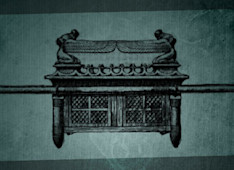Marks of a True Church

Sadly, we live in an age in which the church is viewed more or less as a smorgasbord. There are all kinds and types of churches, providing consumers multiple options from which to pick and choose what they like. This was somewhat true in the time of the Reformation, as there were Roman Catholic, Orthodox, Anabaptist, Lutheran, and Reformed churches. Today the situation is even more confusing, since so many organizations call themselves churches. We have everything from theological cults, such as the Church of Jesus Christ of Latter-day Saints, to thousands of garden-variety nondenominational churches, to the so-called “mainline” churches, and everything in between. The Belgic Confession’s words are just as true today as they were when originally penned: “all sects which are in the world assume to themselves the name of the Church” (Article 29).
The Reformers searched the Word of God to answer the question of which churches were actually churches. Although there was some debate between Lutheran and Reformed theologians, and even among Reformed theologians themselves, the Reformed churches eventually settled on the belief that the Word revealed three essential outward marks by which any discerning person could determine whether any given congregation was truly a church:
The marks by which the true Church is known are these: If the pure doctrine of the gospel is preached therein; if it maintains the pure administration of the sacraments as instituted by Christ; if church discipline is exercised in punishing sin. (Belgic Confession, Article 29)
These three marks of a true church—pure preaching of the gospel, pure administration of the sacraments, and church discipline—are in contrast with the marks of a false church, as the Belgic Confession continues:
As for the false Church, it ascribes more power and authority to itself and its ordinances than to the Word of God, and will not submit itself to the yoke of Christ. Neither does it administer the sacraments as appointed by Christ in His Word, but adds to and takes from, as it thinks proper; it relies more upon men than upon Christ; and persecutes those who live holily according to the Word of God and rebuke it for its errors, covetousness, and idolatry. (BC, Art. 29)
The Reformed churches are not motivated to talk about “true” churches and “false” churches by ego or arrogance, but by a sincere desire to see all God’s sons and daughters in churches that feed their souls. We certainly pray that the Holy Spirit will grant us continued resolve to purely preach the gospel, purely administer the sacraments, and exercise church discipline, and that He would protect us from ascribing more power and authority to ourselves than to the Word, from refusing to submit ourselves to the yoke of Christ, from adding to and taking from Christ’s sacraments, from relying more on men than on Christ, and from persecuting those who live godly lives. We pray these things will be true of us because of God's purpose for His church:
Unto this catholic visible Church Christ hath given the ministry, oracles, and ordinances of God, for the gathering and perfecting of the saints, in this life, to the end of the world: and doth by his own presence and Spirit, according to his promise, make them effectual thereunto. (Westminster Confession of Faith, 25.3)
1. Pure Preaching of the Gospel
The most fundamental of the three marks of a true church is the pure preaching of the gospel. Apart from the gospel preached, there is no church.
We see this in the example of our Lord, who began His earthly ministry by preaching—“From that time Jesus began to preach, saying, ‘Repent, for the kingdom of heaven is at hand’ ” (Matt. 4:17)—and concluded it by sending out His apostles to preach and continue His work—“Go therefore and make disciples of all nations… teaching them to observe all that I have commanded you. And behold, I am with you always, to the end of the age” (Matt. 28:19–20).
The Apostle Paul addressed the importance of preaching the doctrine of justification when he said:
How then will they call on him in whom they have not believed? And how are they to believe in him of whom they have never heard? And how are they to hear without someone preaching? And how are they to preach unless they are sent? As it is written, “How beautiful are the feet of those who preach the good news.” But they have not all obeyed the gospel. For Isaiah says, “Lord, who has believed what he has heard from us?” So faith comes from hearing, and hearing through the word of Christ. (Rom. 10:14–17)
To purely preach the gospel, a minister must preach that sinners are justified by the free grace of God alone, which is received through faith alone, which itself is a gift of God, and that this faith is placed in and rests on nothing except Jesus Christ the Righteous. Churches must see to it, in the words of the famous hymn, that those in the pew understand, “My hope is built on nothing less, than Jesus’ blood and righteousness.” It was the loss of this truth in the Roman Catholic Church that so troubled the Reformers. As the Italian Reformer Peter Martyr Vermigli (1499–1562) said about the Catholic Church, “They have undoubtedly corrupted doctrine, since they deny what Scripture affirms: that we are justified by faith alone.”
The Reformers understood justification to be purely preached when the Word is “rightly handl[ed]” (2 Tim. 2:15). A part of using the Word properly involves recognizing that it has two elements: law and gospel. The law is to be preached in all its terror, while the gospel is to be preached in all its comfort as that which the law cannot do (Rom. 8:3–4; CD, 3/4.6). Simply put, the Reformers taught us to preach Christ crucified (1 Cor. 1:23). If a church preaches any other “gospel,” whether it is explicitly faith plus works or some insidious version of “get in by faith, stay in by obedience,” it is not in conformity with the "teaching of Christ" (2 John 9) but with that of an antichrist counterfeit. Anything other than the doctrine of justification sola fide is what Paul termed “a different gospel” (Gal. 1:6), which brings with it an eternal anathema (Gal. 1:8–9).
2. Pure Administration of the Sacraments
The second of the three marks of a true church is the pure administration of the sacraments.
The two sacraments that Christ Himself instituted are baptism (Matt. 28:18–20) and the Lord’s Supper (Matt. 26:26–29). Because of our continuing struggle with sin, the visible Word of the sacraments supplements the audible Word of the gospel preached, for God “hath joined [the sacraments] to the word of the gospel, the better to present to our senses, both that which he signifies to us by his Word, and that which he works inwardly in our hearts” (Belgic Confession, Art. 33). As the preaching of the gospel creates faith, the sacraments confirm that faith within us (Heidelberg Catechism, Q&A 65), just as circumcision did for Abraham, being “a seal (confirmation) of the righteousness that he had by faith” (Rom. 4:11).
To purely administer the sacraments, a church must do so “as instituted by Christ” (Belgic Confession, Art. 29). This means, first, that it recognizes that there are only the two sacraments—baptism and the Lord’s Supper—and that it therefore rejects the five other sacraments of the Roman Catholic Church as false sacraments (Heidelberg Catechism, Q&A 68). Second, this means that it administers the sacraments without the unbiblical ceremonies and elements that have been added to them over the course of history, such as we find in the Roman Catholic Church.
Baptism is to be administered simply with water, in the name of the triune God, and by an ordained minister (Matt. 28:18–20). Whether one is baptized in a church building or at the beach; whether the baptism is done from a font or in a pool; whether it is performed by sprinkling, pouring, or immersion; and whether the minister sprinkles, pours, or immerses once or three times is all indifferent. The Lord’s Supper is purely administered when bread (whether leavened or unleavened) and wine are given to those who profess faith and are members of Christ’s church, whether kneeling, sitting, or standing. This is to be done with the recitation of the words of institution (as the example of Paul testifies in 1 Cor. 11:23–26), the breaking of the bread (“he took bread . . . he broke it”), and prayer over the bread and wine (“when he had given thanks”).
3. Exercise of Church Discipline
The third mark of a true church, church discipline, has a largely negative connotation in our culture, but the biblical idea is both positive and negative.
A person is brought into the church by baptism and is nourished, or disciplined, by the preaching of the gospel and the administration of the Lord’s Supper. All true believers need to be disciplined by these means until the Lord comes again; therefore, they should receive the preaching of the Word from their pastors and partake of the Lord's Supper when it is served by the church elders. By these means, church leaders carry out the positive form of church discipline. It is positive in the sense that members are encouraged, built up, and strengthened through God's appointed means and appointed messengers. Scripture exhorts believers to “obey your leaders and submit to them, for they are keeping watch over your souls, as those who will have to give an account. Let them do this with joy and not with groaning, for that would be of no advantage to you” (Heb. 13:17). By contrast, discipline in its negative form involves the “punishing of sin” (Belgic Confession, Art. 29) in those who are unrepentant.
Discipline promotes God’s holiness (Ezek. 36:16–21; 1 Cor. 5:1–5), protects the church from infection (1 Cor. 5:6; Heb. 12:15–16; 2 Tim. 2:14, 16–18), and restores the rebellious, making clear the seriousness of their resistance to Christ’s Word and church (1 Cor. 5:5; 2 Cor. 2:5–11; Heb. 3:12–13; 10:24–25; 12:11–16).
Where can seekers of the truth find the authentic Jesus Christ, His authentic gospel, an authentic church? By looking for the three biblical marks of preaching, the administration of the two sacraments, and the exercise of godly church discipline, the diligent and discriminating person may find the genuine article. With so many “churches” in any given local community, it is imperative that one find a congregation that is a true Christian “church,” one in which Jesus Christ truly meets with His people in Word and sacrament, and shepherds them by the discipline of His undershepherds, the pastors and elders.
More from this teacher
Daniel R. Hyde
Dr. Daniel R. Hyde is pastor of Oceanside United Reformed Church in Carlsbad, Calif. He is author of many books, including God in Our Midst and Welcome to a Reformed Church.








